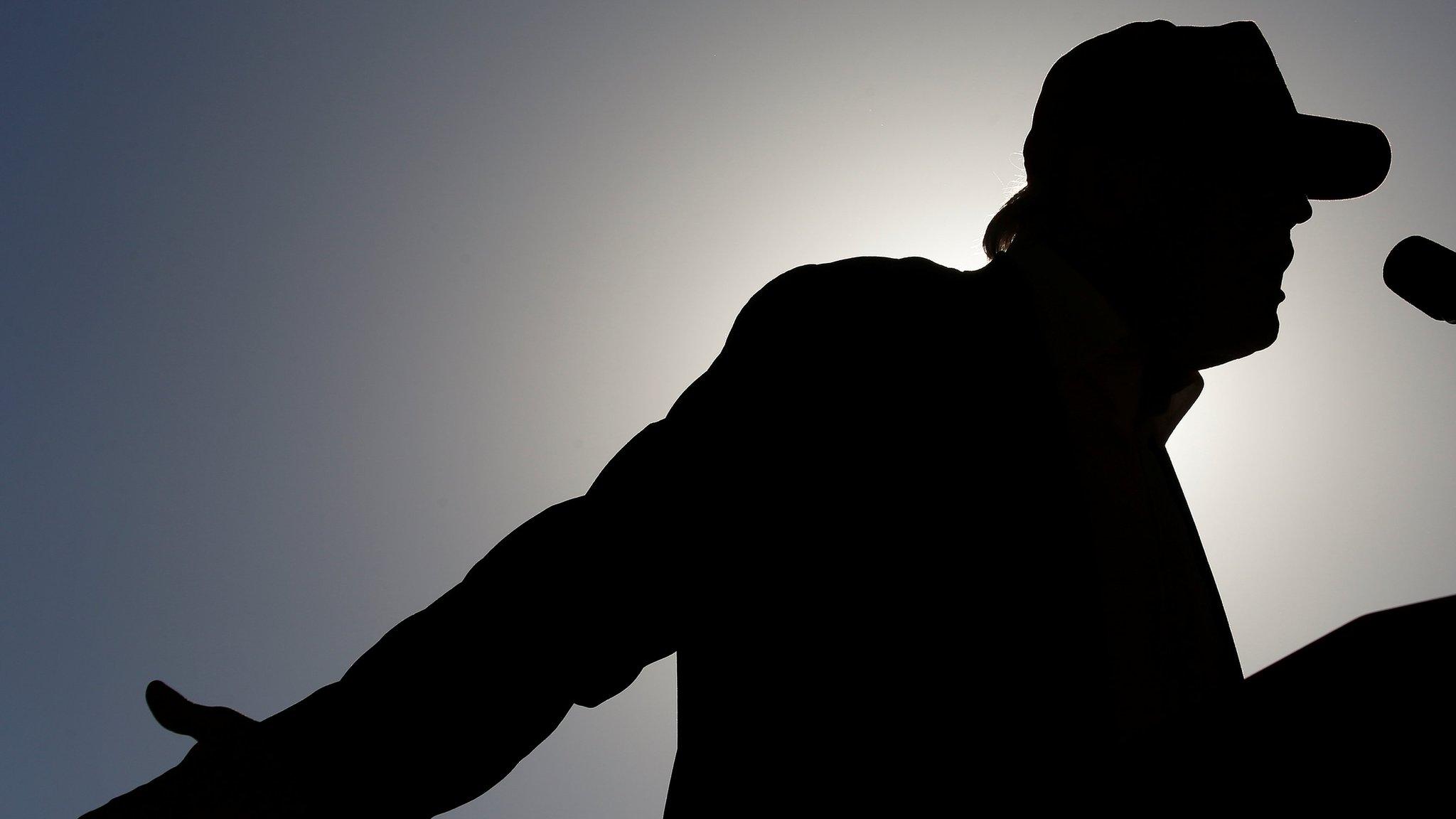October surprise: Does it ever swing a US election?
- Published
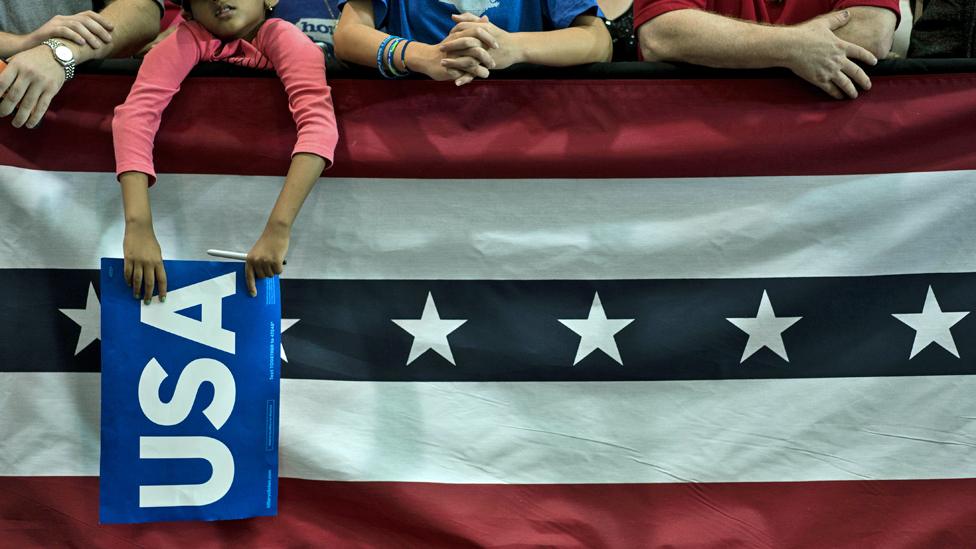
It's a US tradition for voters and the media to look out for "October surprises" that could permanently shift the presidential race. But is it an election myth or fact?
This year we've had two examples.
First, there was the emergence of a 2005 video tape in which Donald Trump made obscene remarks about women, swiftly followed by almost a dozen accusations of groping or sexual assault, all of which he has denied.
Then there was the new FBI inquiry into emails that could be linked to a previous investigation into Hillary Clinton.
However, breaking news stories in October that have the potential to knock the race off its trajectory and secure victory for one side or the other are nothing new. And sometimes, they appear so well timed that observers question whether a conspiracy is afoot and the government or opposition has engineered a situation that works in their favour.
Here are some surprises that appear to have shaken up previous races. But were they really planned - and did they make a difference to the election?

1972 - 'Peace is at hand'
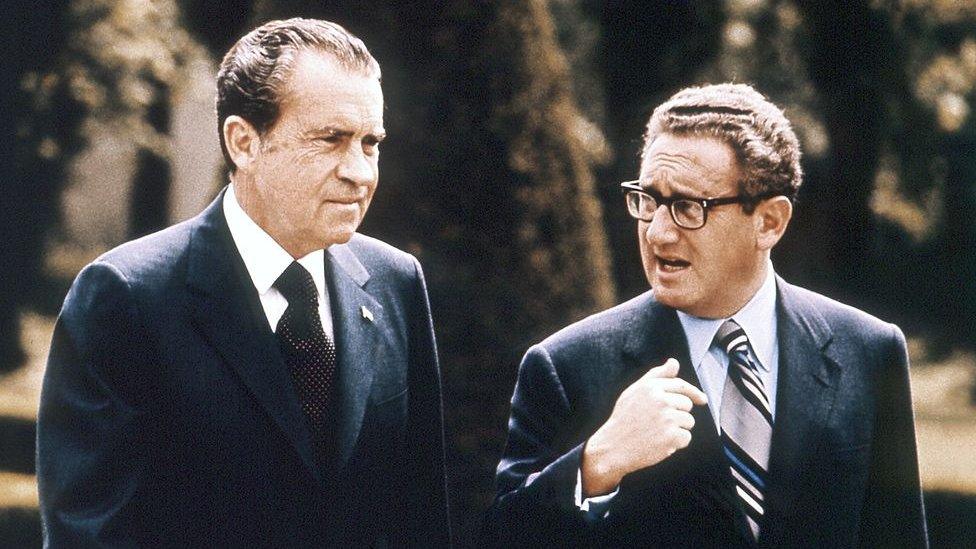
Kissinger, right, had a tense relationship with Nixon but later served as his secretary of state
Scenario: Republican President Richard Nixon was running for re-election as the Vietnam War raged on. The Democrats nominated Senator George McGovern, an anti-war candidate.
Surprise: Nixon National Security Adviser Henry Kissinger announced on 26 October that "peace is at hand" in Vietnam. Immediately placards hailing the imminent end to the war began appearing at Nixon rallies.
Conspiracy? McGovern called the announcement "a cruel political deception". In any case, peace was most definitely not at hand.
Election result: Nixon was re-elected in a landslide. But something Kissinger said at a press conference probably had little impact on the outcome of the election.
McGovern was a weak candidate and the US economy was roaring, with GDP growth in the second quarter of 1972 an astonishing (annualised) rate of 9.8%.

1980 - Americans still held hostage in Iran
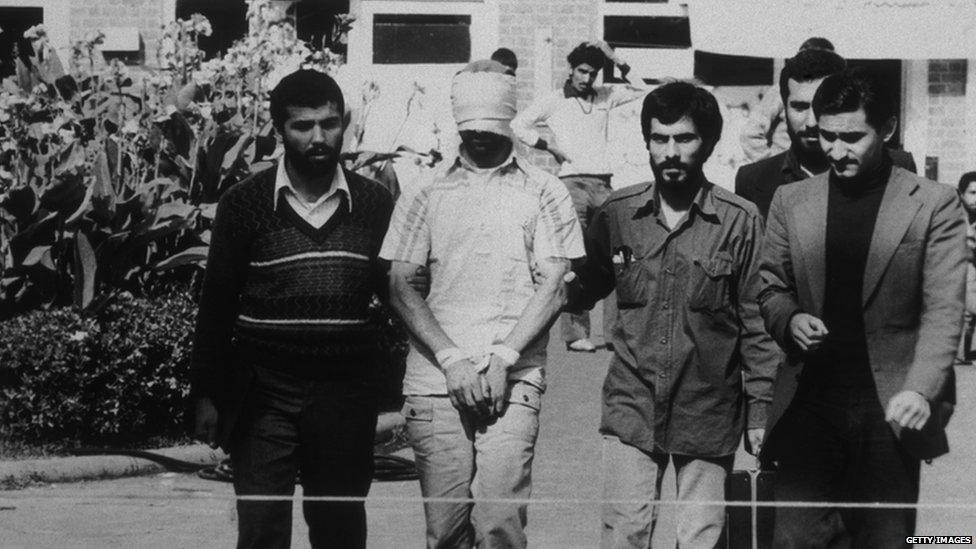
Voters' frustration over the Americans' captivity was a drag on Carter's re-election prospects
Scenario: On 4 November 1979, Iranian radicals stormed the US embassy in Tehran, taking 52 American diplomats hostage. In the election year that followed, Republicans pointed to their continued captivity as proof of American weakness under Democratic President Carter.
Surprise: As the election neared, the Carter team's negotiations with Iran seemed to stall.
Tehran stopped talks in October, and on 21 October Iranian Prime Minister Mohammad Ali Rajai unexpectedly declared the hostages would not be released while Carter was in the White House, according to an account by Gary Sick, a former Iran specialist on Carter's national security team.
Conspiracy? In 1986, Iran's exiled ex-president Abdol Hassan Bani-Sadr said that Republican operatives had met in Paris in 1980 with Iranian agents.
Sick alleged later that the Reagan campaign promised to sell Iran arms for its war with Iraq if the Islamic Republic agreed to delay the hostages' release until after the election.
But congressional investigators found no credible evidence the Reagan campaign made a secret deal with Tehran to delay the hostages' release.
Election result: Reagan won the 1980 election by a landslide. Iran freed the hostages the day he was inaugurated, in exchange for about $3bn in Iranian assets frozen by the US.
The hostage crisis certainly contributed to a sense of national malaise and gave Reagan yet another point on which to question Carter's leadership and competence.
But even more importantly for voters, the economy was nosediving. In the second quarter of 1980, US gross domestic product contracted at an annualised rate of 7.9%.

2000 - Bush's drink driving arrest
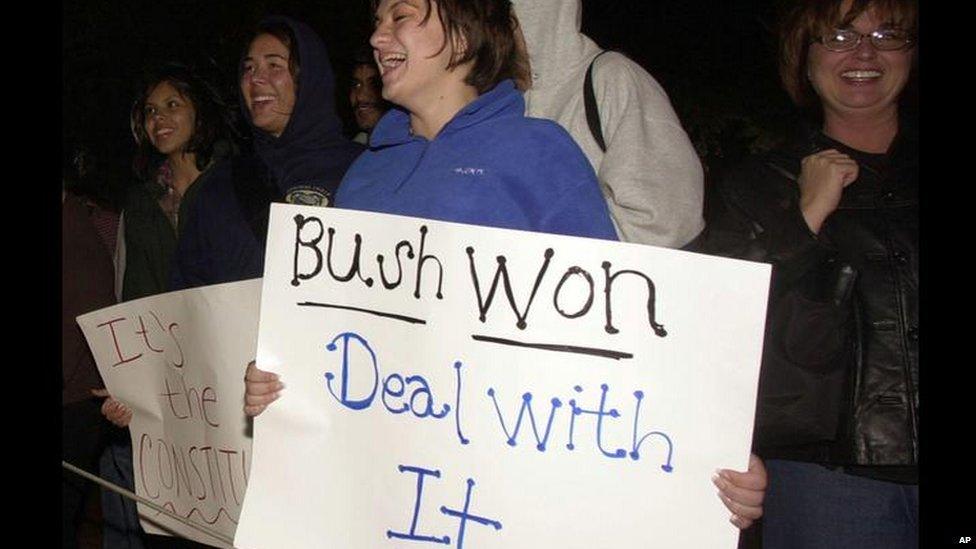
The 2000 vote was so close it was only called weeks after election day
Scenario: George W Bush, then governor of Texas, was locked in a tight race with Democratic Vice-President Al Gore. The economy appeared healthy, the US budget was in surplus, the Cold War had ended and 9/11 was still a year off.
Surprise: News of Bush's arrest in 1976 for drink driving broke five days before the vote. Bush supporters immediately said the episode had been leaked by the Gore campaign, timed to maximum damaging effect. Bush himself said the Democrats had practised "dirty politics".
Conspiracy? The Gore campaign denied responsibility, and no evidence has ever arisen that Democrats were behind the release.
Election result: In one of the closest elections in American history, Gore won the popular vote by about 500,000 votes, but the US Supreme Court halted a re-count of disputed ballots in Florida, handing that state's 29 electoral votes to Bush for the victory.
Bush had long acknowledged past trouble with alcohol. And the day before the election, polls showed as many as eight out of 10 Americans felt the long-ago trouble with the law was irrelevant to the campaign.

2004 - New Bin Laden video
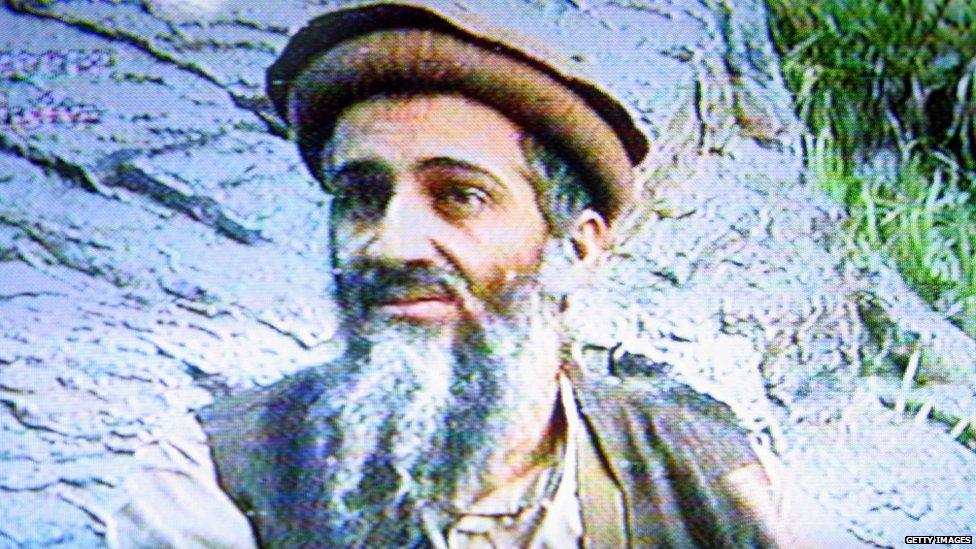
Some analysts speculated Bin Laden, shown in 2003, was trying to insert himself into the 2004 election
Scenario: The country had become mired in the war in Iraq. John Kerry, the Democrat, sought to capitalise on voter anger at the war, while Bush warned against changing course.
Surprise: Less than a week before the election, Al-Jazeera broadcast a tape of Osama Bin Laden taunting Bush and issuing vague threats - and also discussing voter fraud in Florida and the US budget deficit.
Bush immediately worked the images into his campaign message, warning that only he could keep America safe.
Conspiracy? No Democrat made the outlandish claim that Bush somehow had conspired with the al-Qaeda leader. Indeed, Kerry supporters tried to use the video to remind voters Bush had failed to capture or kill him.
Election result: Bush comfortably wins a second term.

2008 - Economy in freefall
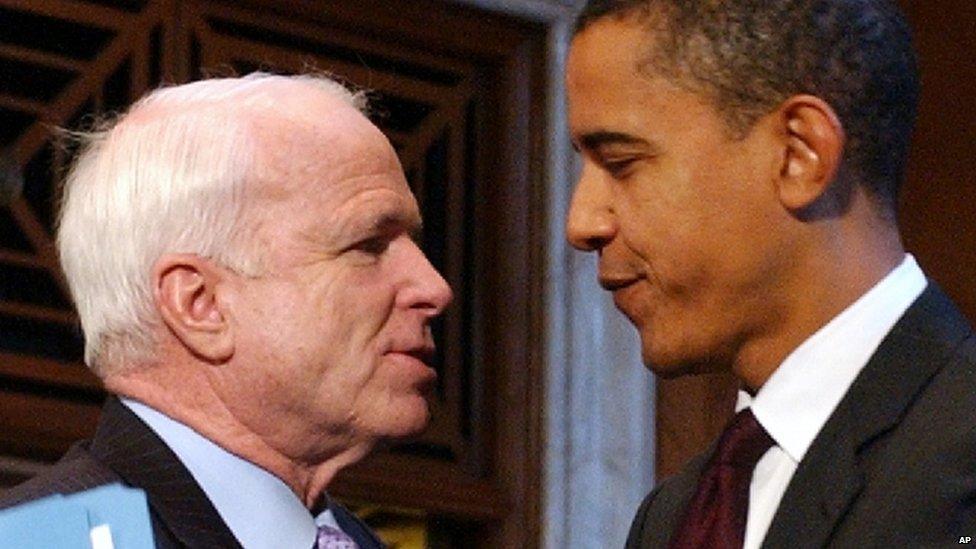
Polls showed voters preferred Obama's reaction to the fall economic crisis to McCain's
Scenario: Barack Obama held a slim lead in the polls through the summer. But Republican Senator John McCain, buoyed by excitement about running mate Sarah Palin, bounced into September with a slight lead of his own.
Surprise: The October surprise this year began in September, when the US economy began to plummet. Lehman Brothers went bankrupt, the Dow Jones Industrial Average fell 18% in the first week of October, and on 3 October, it was announced the US had lost 159,000 jobs.
Election result: Undecideds and voters who had only tepid support for McCain put the growing crisis down to Republican economic policies, analysts say. McCain seemed out of his depth in the panic, while Obama projected calm and competence.
Heading into the last weeks of the campaign, Obama took a significant lead in the polls and, of course, won the election.

2012 - Hurricane Sandy
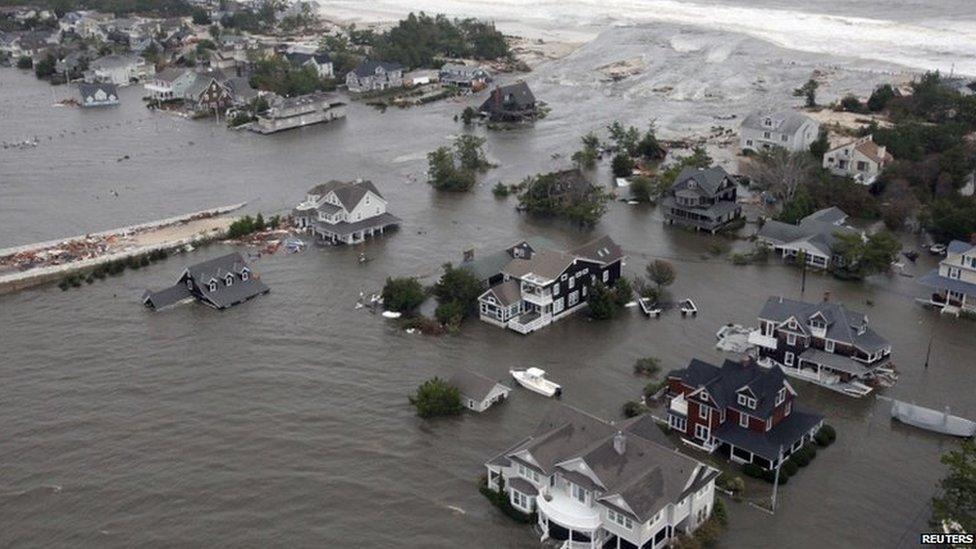
Aerial views show the damage caused by Hurricane Sandy to the New Jersey coast
Scenario: The polls put incumbent Barack Obama and his Republican rival Mitt Romney pretty much neck-and-neck in the 10 days before the election.
Surprise: Although Sandy was a natural disaster, causing major damage in places such as New Jersey and New York as it tore along the East Coast in the final days of October, some media claimed it as an October surprise.
Conspiracy? The disaster gave President Obama the chance to look presidential as he dealt with the emergency, and he got a bipartisan boost from Republican New Jersey Governor Chris Christie who supported the president in Sandy's wake. Mr Romney was put in a difficult position because he couldn't look like he was campaigning during the tragedy.
Election result: President Obama won his second term in the White House.

So can an October Surprise swing an election?
Events in the final weeks can conspire against any election campaign, but political scientists are sceptical whether they make the difference - there's just too much going on in an election to put a result down to a single event, and by October most voters have made up their minds.
One exception may have been the dire economic news in September and October 2008, says political scientist James Campbell of the University at Buffalo.
He says the late breaking news in this campaign may have more effect than in previous years because both candidates have many voters who are leaning towards them as "the lesser of two evils."
"The turnout of these voters may be dampened by further uncertainty that they are voting for a candidate worthy of their votes," he adds.

More on the US election
Lorain, Ohio, where a lack of jobs has workers turning to Donald Trump
- Published30 October 2016
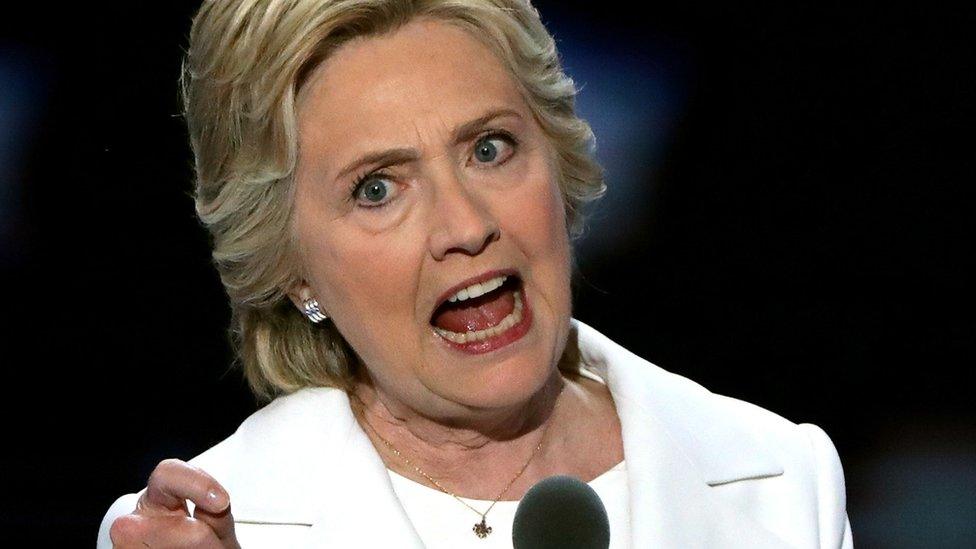
- Published23 October 2016
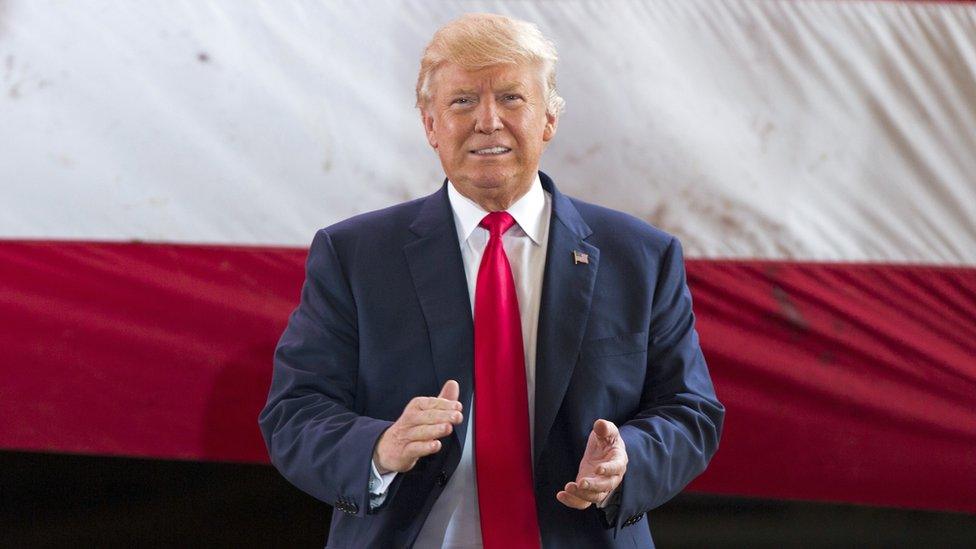
- Published6 July 2017
